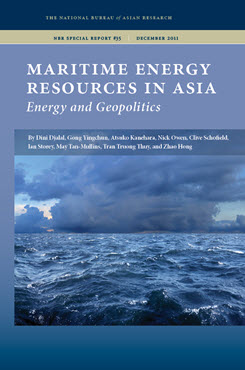Indonesia
Domestic Transformation and the Implications for Maritime Energy Security in Southeast Asia
This essay will analyze the energy industries and markets of Southeast Asia, with emphasis on trends in Indonesia; examine sovereignty and production disputes over the Ambalat area in the Sulawesi Sea and the Natuna Islands; and illustrate the evolving interests in and approach to such disputes on the part of the region’s two most important powers: the U.S. and China.
EXECUTIVE SUMMARY
This essay will analyze the energy industries and markets of Southeast Asia, with emphasis on trends in Indonesia; examine sovereignty and production disputes over the Ambalat area in the Sulawesi Sea and the Natuna Islands; and illustrate the evolving interests in and approach to such disputes on the part of the region’s two most important powers: the U.S. and China.
MAIN ARGUMENT
Southeast Asia is a vital component of global energy security, and it is rife with sovereignty disputes. Increasing domestic demand by Southeast Asian countries underlines the jockeying for specific sovereign rights across the region. The varying claims in the South China Sea have evolved over the decades, in step with political developments among the respective countries.
In Indonesia, democratization has allowed for economic nationalists to push for an inward, protectionist economic policy, and the results have been beneficial for China and, for now, detrimental to the United States. This economic nationalism is dictating the progress of these claims, resulting in slower exploration efforts regarding the contested resources and, ultimately, underinvestment from wary potential investors and reduced production capacity. Indonesian territorial disputes over Ambalat and Natuna highlight these heightened tensions and their adverse affects on energy production.
POLICY IMPLICATIONS
- Indonesia’s energy sector needs a comprehensive energy strategy that focuses on reducing the inefficiencies of the system and increasing production capacity.
- Even if the current administration or future administrations do not wholeheartedly agree with economic nationalists’ demands, they have to incorporate these concerns into policy.
- U.S. re-engagement with Indonesia and Southeast Asia as a whole can do no harm, and perhaps will lessen the anti-Western sentiment brewing in Indonesian opposition political circles and lead to a more favorable investment climate.
- China should deliver concrete business investments and enhance economic partnerships in the region as well, while the current business environment remains in its favor.


